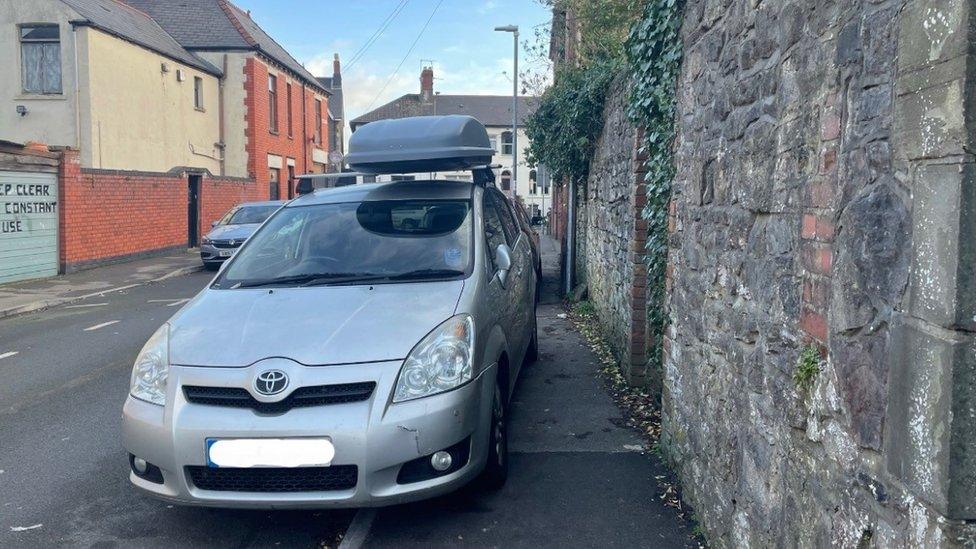Swindon: 'Get a grip' on pavement parking, say sight charities
- Published
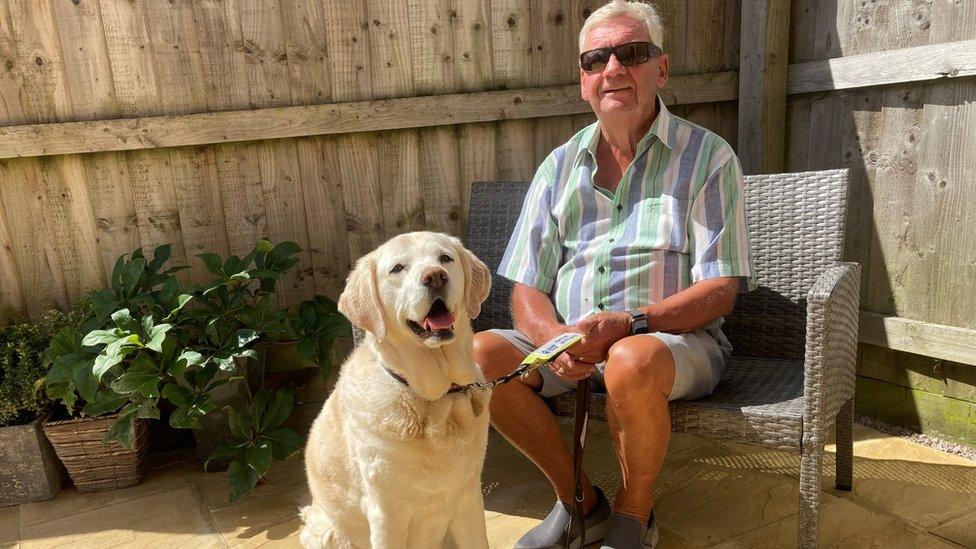
Mr Fletcher with his retired guide dog, Nutmeg
People living with sight-loss in Swindon are calling for the government to "get a grip" on pavement obstructions, including parked cars.
Charity Guide Dogs, external warns that blind pedestrians "take their lives in their hands" every time a blocked footpath forces them to walk in the road.
Campaigners want councils to get extra powers to prevent pavement parking.
The government said that it would respond to a 2020 consultation on the issue "as soon as possible".
Alan Fletcher, of Stratton in Swindon, says that the problem is particularly bad in his neighbourhood.
The 75-year-old, a former chairman of Swindon Guide Dogs, was registered blind in 2005 due to retinal dystrophy and ocular melanoma.
Mr Fletcher's guide dog, Nutmeg, retired in September 2022, and he is now relying on a cane while he waits for a new guide dog, although there is a bit of a waiting list due to the impact of the pandemic.
Speaking to BBC West, he said: "The dogs are trained to go around obstructions and take me on the road, but the trouble is, [the cars] are putting us both in danger."
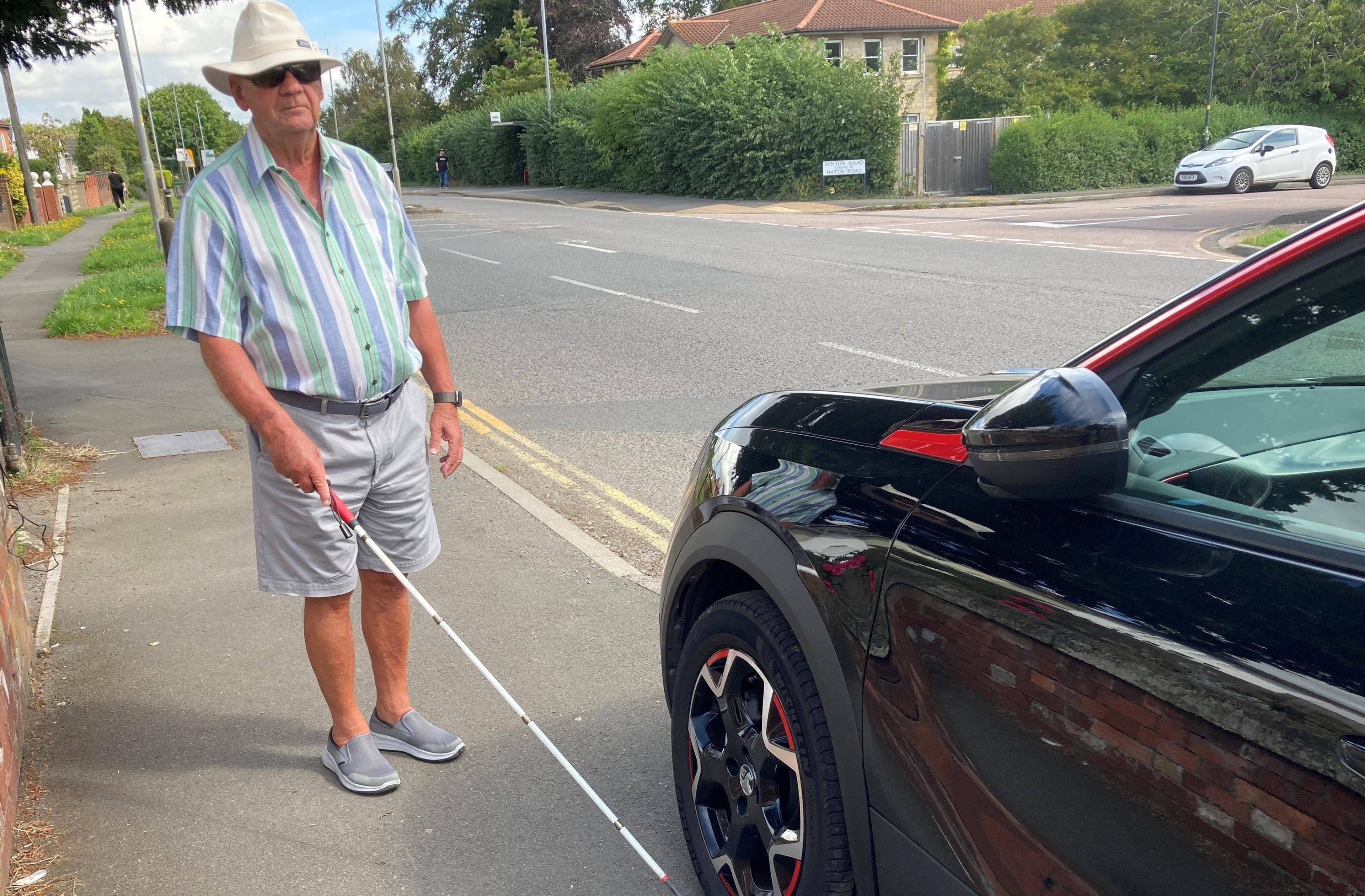
Mr Fletcher trying to negotiate pavements with a cane while he waits for a new guide dog
As well as parked cars, overhanging shrubbery has often left him with a scratched and bleeding face, while cyclists on the pavement are a major hazard.
Marc Gulwell, of Charity Wiltshire Sight, external, said that as well as creating trip hazards, blocked pavements can make it very hard for the visually impaired to navigate.
"While guide dogs are trained to go around obstructions, obviously it is really dangerous for people with sight-loss to go into the road when there is traffic."
A bylaw in London bans drivers from parking wholly or partially on the pavement, with drivers fined if they do so. But other local authorities have yet to be given this power.
In 2020 a consultation on pavement-parking was begun that proposed a number of solutions. But the government has yet to respond to its findings.
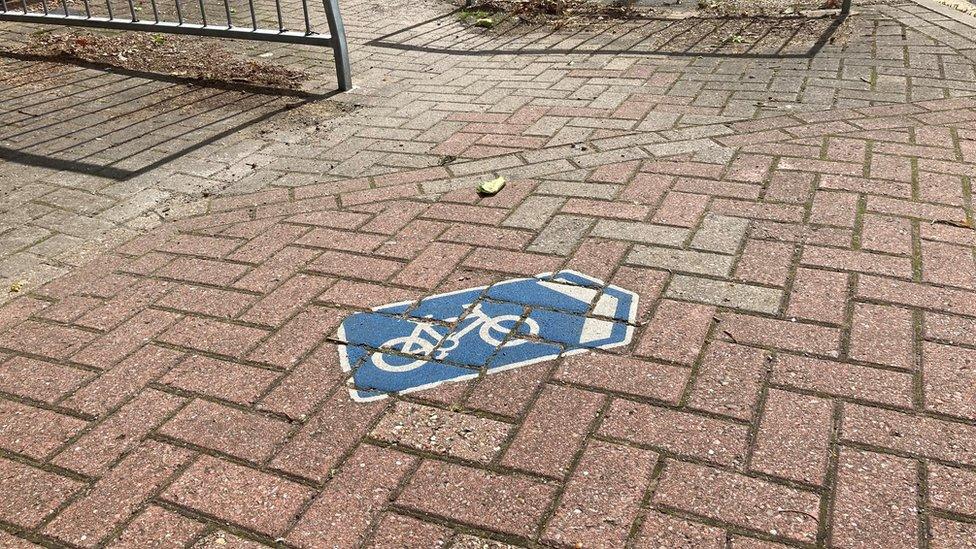
Cyclists on pavements cause regular problems for Mr Fletcher
Clive Wood, regional campaigns manager for Guide Dogs UK, said every time a guide dog takes its owner into the road "you are taking your life in your hands".
"We really need the government to get a grip on pavement-parking," he said.
He said that parking on pavements does not need to be banned completely. "We are just saying there needs to be a sensible approach to this issue."
Guide Dogs wants the government to take action on the findings of the pavement-parking consultation and for councils to use their existing powers to tackle pavement clutter.
He added that the public needs to be "mindful" of footpaths and consider "what obstacles you can prevent such as pavement parking, overhanging branches".
"All people with sight-loss want is to get from A to B," he said.
A spokeswoman for the Department for Transport said: "Everyone should be able to navigate their streets without obstacle and we'll continue to work with local authorities and charities to keep pavements clear wherever possible.
"In 2020, we launched a consultation to explore options for tackling pavement parking and better equip councils to take action. We'll publish the response as soon as possible."
Swindon Borough Council has been approached for comment.

Follow BBC West on Facebook, external, Twitter, external and Instagram, external. Send your story ideas to: bristol@bbc.co.uk, external
- Published5 July 2023
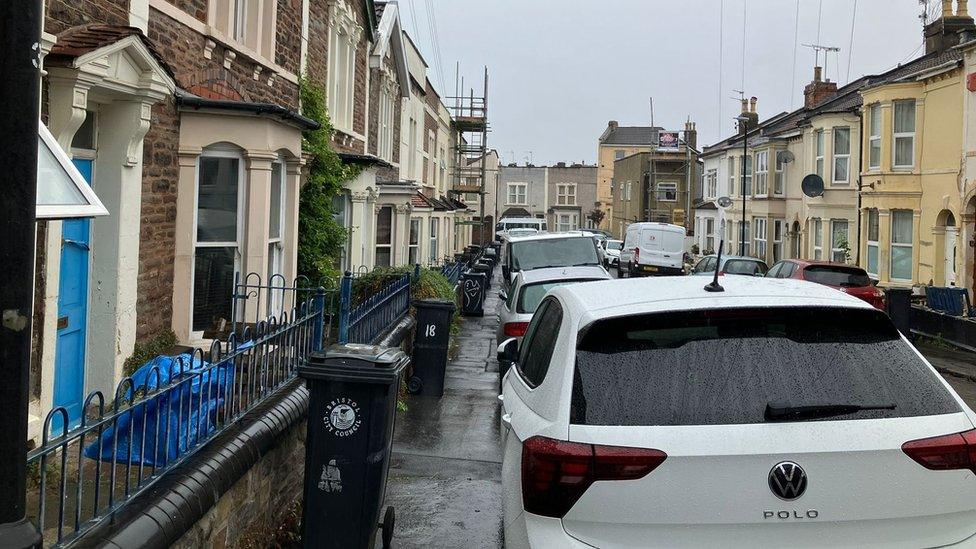
- Published28 June 2023
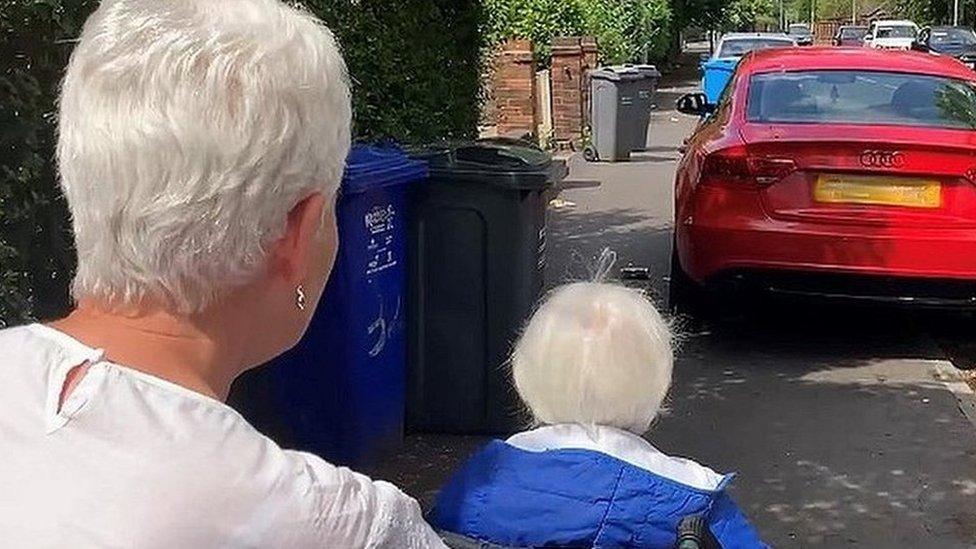
- Published20 February 2023
